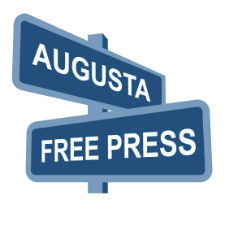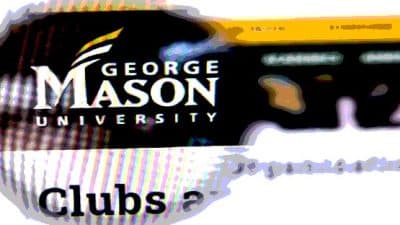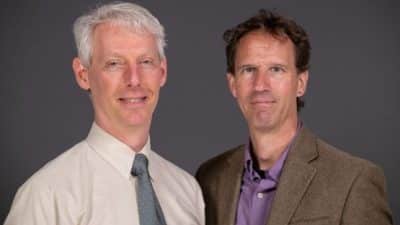
People praise us for being ahead of the curve in the media business, like we figured out on July 2, 2002, that newspapers were dying, and that the only way around having to go back to grad school or take that job bagging groceries was to start a news website that would one day be wildly successful.
Um, no. We had nothing figured out, and wouldn’t for, oh, well, about a decade or so into our run.
As with any innovation, it’s only innovation in retrospect. In the moment, it was about survival, though I’m not even sure that word captures where we were at the time.
My wife, Crystal, was serving as the editor of a weekly paper in Charlottesville, and I had followed her from my first job in journalism, at The News Virginian. We were at that weekly, The Observer, for almost two years, not knowing when we’d signed on that the paper had been taken over by right-wingers intent on taking on liberal Charlottesville from within.
(Sound familiar?)
That wasn’t going to work out long term, as anybody with half a brain could have foretold, and in the spring of 2002 the publisher started asking employees to hold off a day or two before trying to deposit paychecks in the bank.
Yeah, ugh. Crystal and I left in June, and then tried to figure out what was next.
Most likely, it was leaving the Waynesboro-Charlottesville area to continue to work in the media, but in the meantime, we took a flyer on launching a news website, with an offer from a good friend, Mark Corum, to design a site for us gratis and then teach us how to maintain it.
As we scoured the want-ads – this was 2002, so people still did that – for writing and editing jobs elsewhere, we also played around with this idea of online news.
Even then, we weren’t fully committed. To me, the endgame to this AFP thing had us using whatever readership we’d eventually build online to use as the basis for a move back into print.
Yep, the thought with AFP was, we’ll play journalists online for a while, and then do something real and tangible.
Which, actually, happened, in a manner of speaking. The AFP website grew in readership to the point that, by 2007, we felt like we were in a good enough place to launch a full-color print magazine, The New Dominion, printing and distributing 10,000 copies six times a year, even winning awards from the Virginia Press Association against some pretty serious magazine competition.
We’re lucky we survived. As it turns out, 2007 was not a good time to launch a print magazine, not with the recession about to hit in the fourth quarter of that year. The first thing business and industry does in a recession is cut advertising, and deadline days turned into our equivalent of NPR fund drives, wheeling and dealing every which way we could to get enough money to pay the printer.
What saved us was something that we had considered a means to an end. We’d learned enough at the outset of AFP to be able to maintain the website, then over time played around with design to the point that people started asking us to help them with websites they were maintaining for their businesses or nonprofits.
It seemed at first a way to make a few dollars on the side, but by our 10-year anniversary, in 2012, the web-design and marketing sides of the business effectively were the business.
That has come around in the past two years, but again, not in the way we’d have ever predicted. Local newspapers traditionally make the bulk of their money from local advertising, local businesses trying to access the local readers. Local online advertising never did take off after the end of the Great Recession, but Google AdWords and sponsored links advertising have more than made up for what we don’t get from local business, to a point where the news and web-design/marketing arms are back to about a 50-50 split in terms of annual revenues.
Which is good for our bottom line, and also good for what we can offer readers on AFP. More time, less stress, adds up to better content for our readers.
Again, not exactly what we had envisioned in 2002, in terms of the content. I had worked, by the time that we had launched AFP in 2002, for seven years as a local news reporter, which meant spending several nights a week covering city council, board of supervisors and school board meetings, keeping up with the local chamber of commerce, trying to squeeze in time for local high school sports when I could.
If you’re a regular reader, you’ll notice that there is almost none of that on AFP today. The reason is strategic.
Back when I worked entirely in print, we never knew what people were reading specifically, just that the audited circulation figures told us that we had x number of overall readers a day, and even those numbers were a few months old.
With the web, I know at any time of the day how many people have clicked on the site in aggregate, and also how many people have read any particular story posted that day, and how many are reading archived stories.
With regard to the local government and local high school sports, there were people reading, but not as many as were reading our coverage of the General Assembly in Richmond, of Congress in Washington, of UVA athletics, of bigger-picture economic issues, and actually, it wasn’t even close.
My heart is still in taking a seat in the front row at the city council meeting and walking the sidelines at a high school football game on Friday night, but the local advertising dollars just aren’t there to support doing that at that level anymore, and I’m not alone in thinking that.
Look around the area, and I think we have legitimate concerns about the future of the two local print dailies, my alma mater, The News Virginian, and the once-mighty News Leader. Both are struggling to find a place in the ever-evolving media climate, with advertising dollars in decline, readers chafing at having to pay for content, and a news-coverage model that is more labor-intensive than anyone outside the business could ever imagine.
The dirty little secret to the news business is that we (in this case, I’m using the royal we) don’t really make money providing good, thorough local news coverage anymore.
The slow death of local advertising means we have to focus on clicks, as hard as that might be for some of us to admit.
With AFP, we’ve decided to focus our pursuit of clicks on providing analytical pieces on UVA athletics and local, state and federal government, politics and public policy, about as close to being NPR with flair as you can get, and still make money doing it.
We’re fortunate that we’ve been able to find our niche in this respect. AFP averaged more than 10,000 unique readers and 75,000 page views a day in June, which doesn’t scare the Washington Post or New York Times, but is more than enough for us to be able to continue doing what we’re doing.
Which makes me think back to the summer of 2002. I’d look every day, as I do now, at the numbers, and get excited when we’d have 100 page views in a one-hour period.
I had no idea that we’d make it even three months before we’d need to get jobs, and now I have bad dreams every so often about having to go back to work in somebody else’s newsroom.
The old saw about it not being work if you enjoy doing it is an underrated truth.
I haven’t worked a day in 16 years.
Neither have I not had a day off, but that’s another story for another day.










